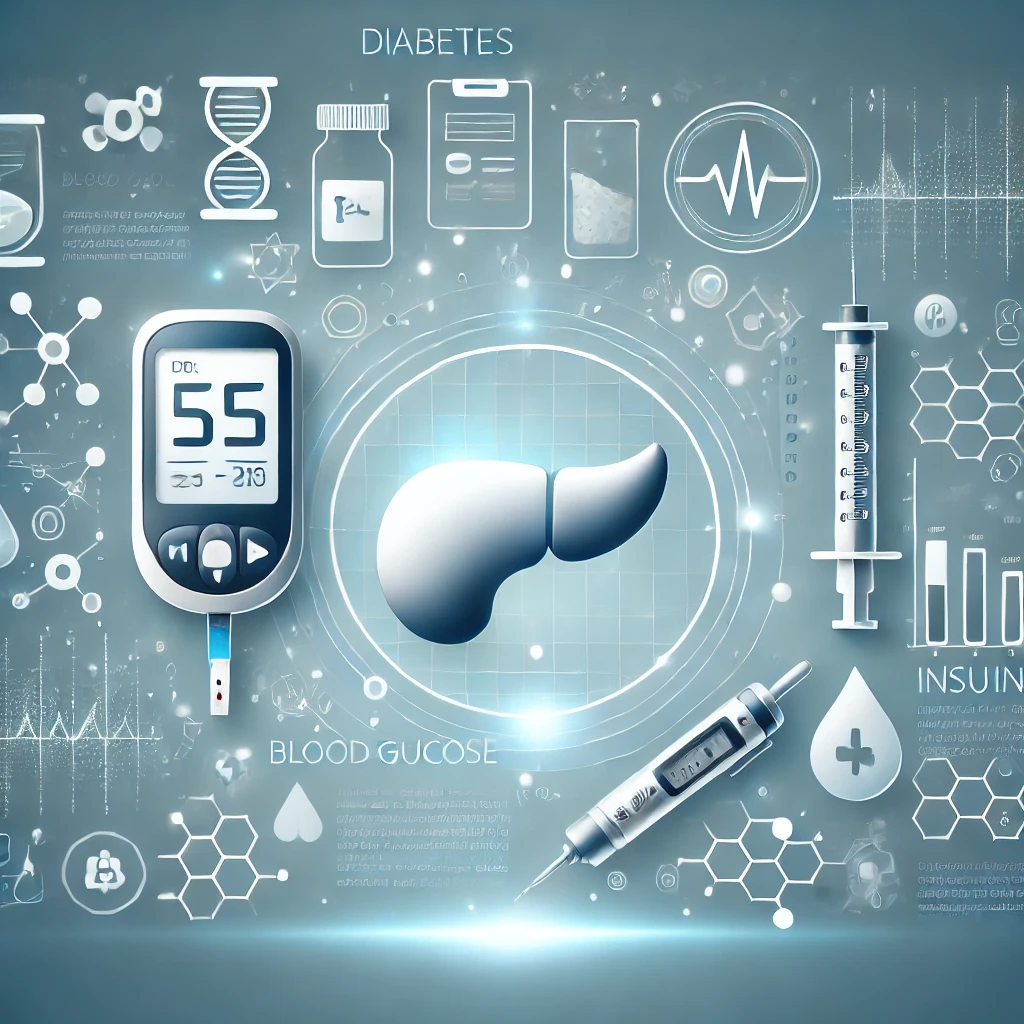Our Services
- Diabetes Mellitus
- Hypertension
- Osteoporosis
- Inflammatory Bowel Diseases
- Hypothyroidism and Endocrine Diseases
- Chronic Respiratory Diseases
- Chronic Neurological Diseases
- Chronic Liver Diseases
- Chronic Kidney Diseases
- Cardiovascular Diseases
- Arthritis and Rheumatic Diseases
- Confidential STD Testing & Treatment
- Women’s Health Screenings
- Men’s Health Screenings
- Obesity
- Vitamin Infusions
- Weight Management

Diabetes Mellitus
Diabetes Mellitus is a chronic disease that affects how the body processes blood glucose. There are two main types: Type 1 and Type 2 Diabetes, with Type 2 being more common due to a sedentary lifestyle and obesity.
At our clinic, we offer regular follow-ups, blood glucose monitoring, and medication adjustments with specialists to ensure optimal disease management.
Types of Diabetes Mellitus
Type 1 Diabetes
- An autoimmune disease where the immune system attacks insulin-producing cells in the pancreas.
- Typically diagnosed in children and young adults.
- Requires daily insulin injections..
- Symptoms include excessive thirst, rapid weight loss, and extreme fatigue.
Type 2 Diabetes
- More common and lifestyle-related.
- Develops due to insulin resistance and the body's inability to use insulin effectively.
- Risk factors include obesity, physical inactivity, and family history.
- Managed through diet changes, exercise, and, in some cases, oral medication or insulin.
Symptoms of Diabetes
- Increased thirst and frequent urination.
- Excessive hunger.
- Unexplained weight loss.
- Fatigue and blurred vision.
- Slow-healing wounds.
- Recurrent infections in the skin, gums, or urinary tract.


Diabetes Treatment & Management
1. Blood Glucose Monitoring
- Frequent blood sugar checks are recommended to maintain optimal levels.
- Use of glucometers or continuous glucose monitoring devices.
2. Medication & Therapy
- Insulin therapy (for Type 1 and some Type 2 cases).
- Oral medications (for Type 2 Diabetes, such as metformin).
- Adjustments based on patient progress.
3. Diet & Nutrition
- Balanced diet with controlled carbohydrate intake.
- Avoid refined sugars and saturated fats.
- Consume fiber-rich foods and lean proteins.
4. Regular Physical Activity
- At least 150 minutes of exercise per week.
- Activities such as walking, swimming, and strength training.
5. Regular Medical Check-ups
- Consultations with endocrinology specialists.
- Hemoglobin A1c (HbA1c) tests to assess diabetes control.
Diabetes Complications
Without proper management, diabetes can lead to:
- Cardiovascular diseases (hypertension, heart attacks).
- Kidney problems (kidney failure).
- Eye damage (diabetic retinopathy and blindness).
- Neuropathy (nerve damage causing pain and numbness).
- Foot ulcers and infections, which may lead to amputations.
Advantage Diabetes Care
At our clinic, we provide specialized diabetes management, including:
✅ Personalized medical consultations.
✅ Education on nutrition and lifestyle changes.
✅ Medication control and adjustments.
✅ Advanced glucose monitoring.
✅ Customized exercise programs.
Health Tips & Info
- Maintain a balanced diet with fruits, vegetables, and healthy proteins.
- Engage in regular physical activity to improve insulin sensitivity.
- Manage your weight to reduce the risk of complications.
- Avoid excessive sugar and refined carbohydrate consumption.
- Schedule regular medical check-ups to detect any issues early.